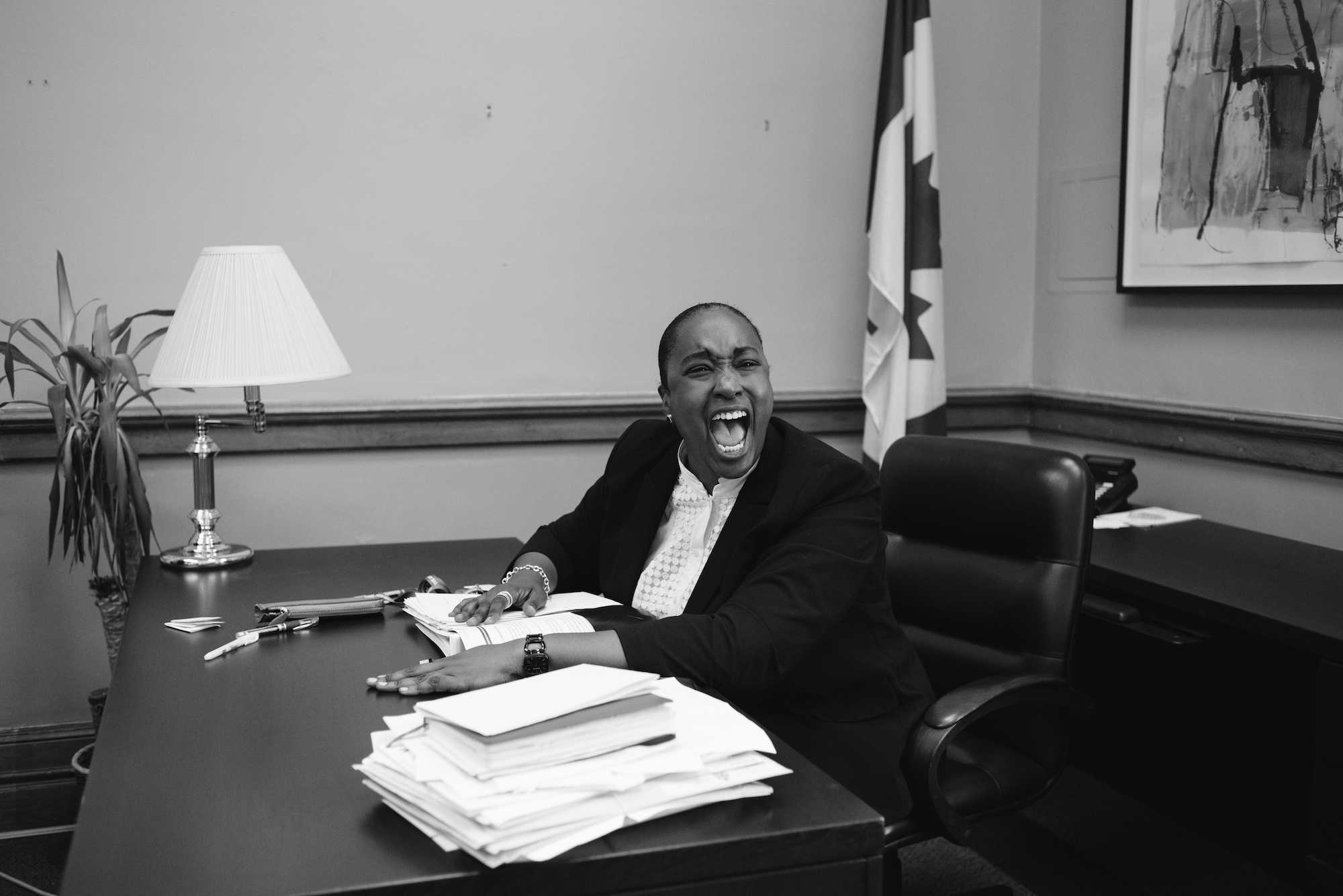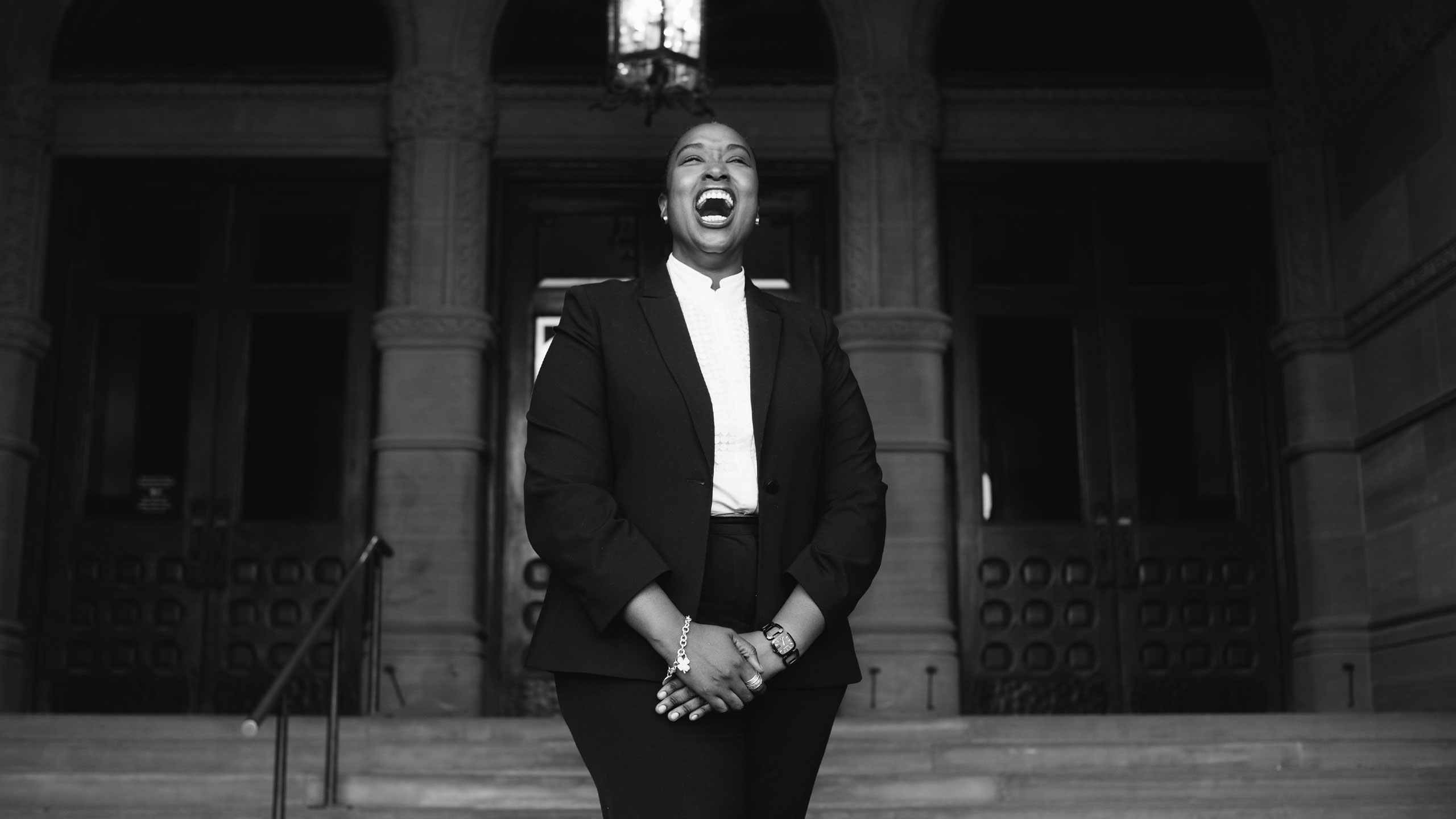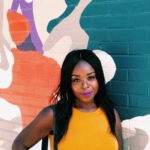On June 7, 2018, Jill Andrew became the first out Black queer Member of Provincial Parliament (MPP) elected to Ontario’s legislature. A longtime activist, she made the leap to politics to serve the downtown riding of Toronto–St. Paul’s for the NDP in Ontario. For the past three years, Andrew’s portfolio has also included serving as the Official Opposition critic for women’s issues as well as culture and heritage, sitting as a member of the Standing Committee on General Government and becoming a founding member of the Ontario New Democratic Party Black Caucus—a first of its kind in the province’s history.
But her biggest challenge came last year at the onset of the COVID-19 pandemic. With more than 20 percent of reported COVID-19 cases affecting Black people, every legislative decision has served to illuminate the disproportionate impact that responses to the pandemic have had on Black LGBTQ2S+ communities. Poor legislative responses have severely affected Black queer and trans communities, including sex workers, migrant workers and trans youth. From paid sick days and paid sick leave, to raising rates for ODSP and OW to at least match CERB to freezing rents, Andrew has been a fierce advocate of proposing transformative ways to build a better Ontario.
Andrew sat down with Samantha Peters this summer to reflect on 16 months of COVID-19, her work as an MPP thus far and what we can expect to see from the Official Opposition in Ontario in 2021 and beyond, especially as it relates to Black LGBTQ2S+ communities. (Disclosure: Peters formerly worked as a researcher for Ontario’s Official Opposition.)
You are widely recognized as not only one of the first out Black queer MPPs elected to Ontario’s legislature, but also as a longtime advocate in the Black LGBTQ2S+ community. How have your identities and community involvement informed the legislation that you propose in the Legislative Assembly?
I was quite stunned to learn when I was elected that I was reportedly the first (out) queer Black MPP to sit in any legislature in Canada in the 21st century. Make no mistake: the Legislative Assembly of Ontario—those chambers where we create, debate and defend legislation that directly affects people’s lives—is a workplace. It could benefit from dedicated equity, diversity and inclusivity, anti-racism and anti-oppression training if it is ever to become a space where people like me can feel safe, heard and appreciated as our full selves.
We’ve seen how poorly the pandemic has been managed in Ontario, and we know that COVID-19 has had a devastating impact on Black LGBTQ2S+ communities across Ontario. What have you seen during the pandemic among Black LGBTQ2S+ communities, and what have you and your party pushed for in order to support our communities?
Yes, COVID-19 has had a disproportionate impact on Black communities and this of course includes Black LGBTQ2S+ community members. But let’s face it: anti-Black racism, homophobia and transphobia in health care has a history well preceding the pandemic.
During this pandemic, I know personally that Black queer and trans youth have had especially difficult times because of social isolation. We needed to socially isolate and we needed to stay at home to help save our lives during this unprecedented time, but this affects people living in homophobic, transphobic and biphobic spaces differently. They’ve had to live with parents or family members who do not accept them, who question their gender identity and expression and who are flat out hateful. This hasn’t been easy. The Ontario NDP is committed to ensuring Black LGBTQ2S+ communities have access to knowledgeable and secondary affirming mental health supports without waitlists, and that are in our community. For many of us, our friends and our social networks are our chosen family. Our mental health has to be a priority as we tackle COVID-19 recovery.
And while COVID-19 may be the big conversation, we can never forget the additional “pandemics” that have affected our communities before the novel coronavirus and that will continue if we don’t see systemic changes: homophobia, transphobia, anti-Black racism—all are still thriving.

Credit: Courtesy of Hot Docs
You are a founding member of the Ontario NDP Black Caucus, which is believed to be the first of its kind in Canadian legislative history. What are your top priorities, and why do you believe that it’s important for the Black Caucus to exist in Canada today?
A complete and full ban on racial profiling and carding is still on the books in Ontario. The Ontario NDP was committed to banning this during our 2018 campaign and we continue to be. While the pandemic has been a key focus for many folks, Black people have still lost their lives through interactions with the police. Black folks calling for mental health support end up dead.
I can never forget how our LGBTQ2S+ community sounded the alarms when a serial killer was killing queer folks in Toronto’s gay village. The police did not listen. They dragged their feet, and we all saw the results of them ignoring the calls from our communities.
We have put forth our commitment to end police violence and invest in our communities with a complete overhaul of police oversight, rather than investments in ballooning police budgets that often criminalize our Black and LGBTQ2S+ communities. We need to invest in mental health and addictions support and in housing. We need to commit to addressing the homelessness and housing crisis, and have more school education workers, guidance counsellors and social workers.
In 2019, you introduced Motion 89, which called on the provincial government to adopt a Gender Equity Strategy that includes thorough inter-ministerial analysis on the impacts of each policy change prior to the introduction of bills, motions and regulations. Why was it important for you to table that motion?
I could write a book about this, but I won’t. I’ll just say this: COVID-19 has disproportionately impacted BIPOC women who have been on the front lines as our health care workers, single parents, essential workers in retail, education workers and more. Yet, during this pandemic alone, Ontario Premier Doug Ford has denied midwives pandemic pay and he has denied Ontarians a paid sick day program. These few examples alone directly affect women.
Of course, long before this, women—especially Black women, Indigenous women, trans women, women with disabilities and others made marginalized—have been dealing with the pandemics of white supremacy, sexism, ableism and misogynoir.
I put this bill forward in 2019 because I wanted to ensure women’s and other groups made marginalized voices heard—that they were consulted and that every piece of legislation brought into Queen’s Park would require an analysis of its impact on the lives of those it most directly affects. I also called for a unique interministerial way of governing where demanding that all ministers work together and not in the sort of siloed traditional way that ignores the nuanced and intersectional lives of the very people legislation is supposed to help.
To date, the government has not passed my motion. We need a feminist recovery, an anti-racism and anti-oppression recovery. We need a recovery that simultaneously responds to the many systemic and public health pandemics that have been impacting BIPOC women’s lives long before COVID-19.
With a provincial election around the corner in 2022, how will the Ontario NDP and the Black Caucus work with Black LGBTQ2S+ Ontarians to fight anti-Black racism and build Black queer and trans perspectives into provincial politics?
Simply put, we need more Black queer and trans people elected into politics. This is how we get folks at the table who are committed to real paid sick days in Ontario, who get why real affordable housing and a commitment to inclusionary zoning is crucial, who understand the importance of pay equity. These are people who understand why we must have mandatory Afrocentric curriculum in our schools K-12, or why a full and robust Anti-Racism Directorate is needed, or why all provincial staff must receive equity training.
We need more Black queer women and femmes elected. We need to create safer spaces where people who are diverse actually feel accepted and responded to and not in a tokenistic way. So often, diversity feels good for many until the conversation hits home. We need people at the table who can speak from lived experiences.
This conversation has been edited for length and clarity.
Want even more exclusive Canadian politics content? Subscribe to Rainbow Votes 2021, a special Canadian election newsletter by Xtra. Subscribe to receive the newsletter directly in your inbox, every Thursday.


 Why you can trust Xtra
Why you can trust Xtra


